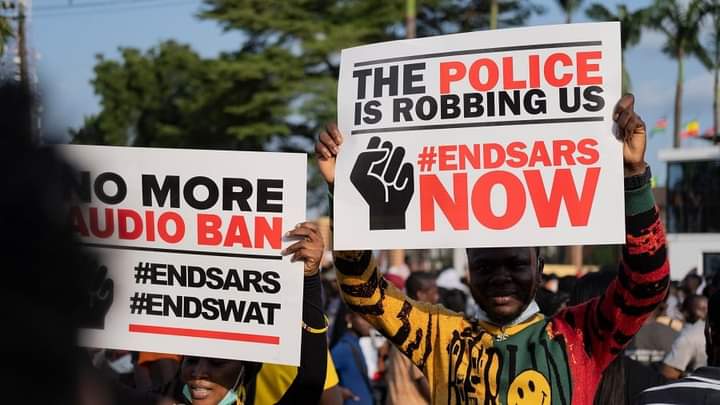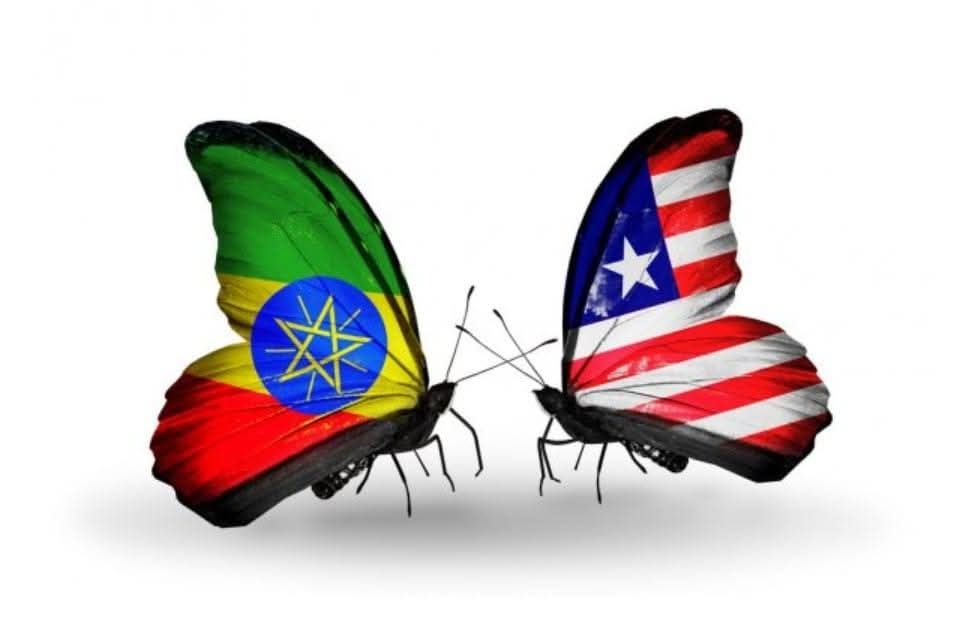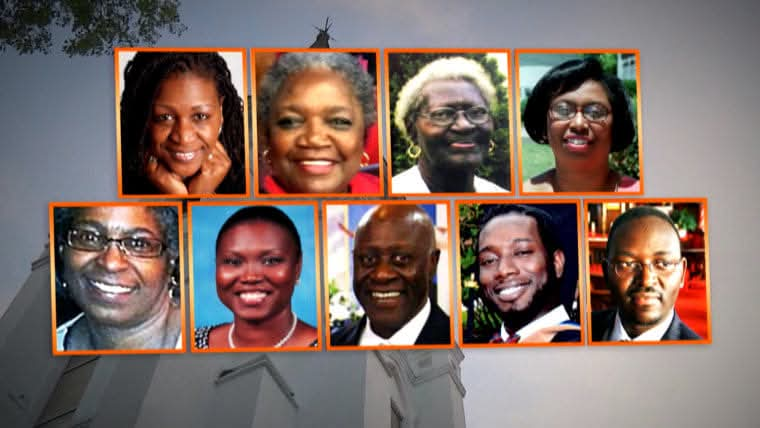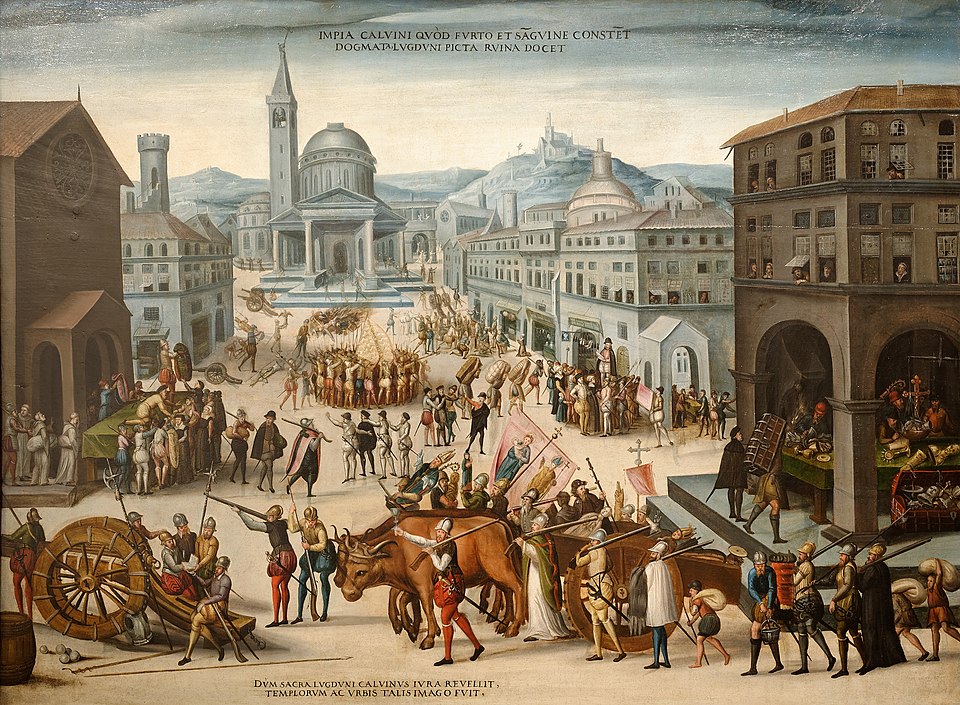#EndSARS: The Genesis, Rage and Timeline of the Protest

Did you know that the End SARS campaign started in 2016 when a human rights activist, Segun Awosanya (Segalink) started #EndSARS campaign on Twitter, and that the campaign started trending on the Internet when on Saturday, 3 October 2020, a video surfaced showing a SARS police officer shooting a young Nigerian in front of Wetland Hotel, Ughelli, Delta State?
End SARS, a decentralised social movement, is a series of mass protests against police brutality in Nigeria. The slogan calls for the End by way of disbandment of the Special Anti-Robbery Squad (SARS), a notorious unit of the Nigerian Police with a long record of abuses.
The End SARS protests started in 2017 as a Twitter campaign using the hashtag #EndSARS to demand the disbanding of the unit by the Nigerian government. Earlier in 2016, a human rights activist, Segun Awosanya popularly known as Segalink started EndSARS campaign on Twitter prompting police authority to announce reform of the police unit but nothing was achieved at the time. After experiencing a revitalisation in October 2020 following more revelations of the abuses of the unit, mass demonstrations occurred throughout the major cities of Nigeria, accompanied by vociferous outrage on social media platforms.
About 28 million tweets bearing the hashtag have been accumulated on Twitter alone. Solidarity protests and demonstrations by Nigerians in diaspora and sympathizers occurred in many major cities of the world. The protests is notable for its patronage by a demographic that is made of entirely young Nigerians. The movement has since expanded to include demands for good and accountable governance.
Within a few days of renewed protests, on 11 October 2020, the Nigerian Police Force, NPF, announced that it was dissolving the unit with immediate effect. The move was widely received as a triumph of the demonstrations. However, it was noted in many quarters that similar announcements had been made in recent years to pacify the public without the unit actually being disbanded, and that the government had merely planned to reassign and review SARS officers to medical centres rather than disband the unit entirely.
Protests have continued accordingly, and the Nigerian government has maintained a pattern of violent repression including the killing of demonstrators. There have been international demonstrations in solidarity with those happening in the country, and the movement has also grown increasingly critical of Muhammadu Buhari's government response to the protests.
SARS officers have been alleged to profile young Nigerians, mostly males, based on fashion choices, tattoos and hairstyles. They were also known to mount illegal road blocks, conduct unwarranted checks and searches, arrest and detain without warrant or trial, rape women, and extort young male Nigerians for driving exotic vehicles and using laptops and iPhones. Nigerians have shared both stories and video evidence of how officers of SARS engaged in kidnapping, murder, theft, rape, torture, unlawful arrests, humiliation, unlawful detention, extrajudicial killings and extortion of Nigerian citizens. A large section of the victims of the abuses of SARS have been young male Nigerians.
Amnesty International accused SARS officials of regularly detaining young male Nigerians illegally and extorting money from their relatives. In 2017, a petition signed by 10,195 people was submitted to Nigeria's National Assembly calling for a total disbandment of SARS. A few Senators backed the call for total disbandment of the unit. Consideration was given to reforming the force, rather than full disbandment due to the number of cases falling.
The campaigners moved from social media using the #EndSARS hashtag to organised, peaceful protests in Abuja, Lagos, Ibadan, Osun, Benin, Ughelli, Warri, Ilorin, Ogbomosho, Owerri, Jos, Kaduna, Calabar and other Nigerian cities and states, threatening to continue if the government refused to disband the force. Not only were there campaigners in Nigeria utilising the hashtag and having protests but they were also done in London and some parts of America recognising this situation as a global event.
In response to the campaign, Nigeria Police Force Public Relations Officer Jimoh Moshood accused the campaigners of being "criminals". Despite this, Inspector General of Nigeria Police Force Ibrahim K. Idris ordered the reform and reorganisation of SARS.
On Saturday 3 October 2020, a video showing a SARS police officer shooting a young Nigerian in front of Wetland Hotel, Ughelli, Delta State trended on the Internet. It was alleged that the police officers took away the young man's vehicle – a Lexus SUV. The trending video caused public outcry on social media, especially on Twitter, with the #ENDSARS hashtag trending.
Just as the ENDSARS trend began on Twitter, on Monday 5 October 2020, another report surfaced of SARS officers killing a 20-year-old upcoming musician named Daniel Chibuike, popularly called Sleek in his neighbourhood. Sleek was said to be sitting in front of a hotel with a friend when the SARS officers approached them, prompting them to flee. According to an eyewitness, the SARS men pursued the pair, shouting "thief", before shooting Sleek as they ran through a supermarket. His friend was arrested.
On Thursday 8 October 2020, nationwide protests on ENDSARS started after weeks of outrage and anger with videos and pictures showing police brutality, harassment and extortion in Nigeria. The protests were led predominantly by young Nigerians in different cities alongside many activists and celebrities. Nigeria Police Force disrupted the protests in some cities, throwing teargas, using water cannons and shooting at unarmed peaceful protesters as seen in Abuja and Osun. This led to the death of Jimoh Isiaq in Ogbomoso, Osun state. By Wednesday, 14 October 2020, the End SARS protests were still on-going with young people in different parts of Nigeria intensifying their calls for reforms and accountability in police operations. On October 20 the Nigerian Army murdered protesters at the Lekki tollgate. The government and army deny these allegations till date.
On Sunday, 11 October 2020, the protestors made a list of five demands to be met by the Federal Government of Nigeria. The demands which were signed by 'A Nigerian Youth' demanded for the immediate release of all arrested during the protests as well as justice and compensation for all who died through police brutality in Nigeria. They also demanded that an independent body be set up within 10 days to investigate and prosecute all reports of police misconduct. The protestors also asked for the psychological evaluation and retraining of SARS operatives before they are deployed to any other police unit. Lastly, they asked for adequate increase in the salaries for officers of the Nigerian police.
In response to the public outcry on police brutality, the Inspector-General of the Nigeria Police banned the FSARS, Special Tactical Squad (STS), Intelligence Response Team (IRT), Anti-Cultism Squad and other tactical units from mounting of roadblocks, checkpoints, stop-and-search and other routine and patrols. Similar bans had been announced multiple times over the previous four years, causing citizens of Nigeria to question whether the bans would actually be upheld. There were further reports of SARS officers involved in killings across the country. As this was the fourth time that the Nigerian government had announced a similar ban on SARS activity, protesters insisted that the notorious police unit be entirely disbanded and wide-ranging reform of the force to follow.
On 19 October 2020, President Muhammadu Buhari reacted to the continuation of the movement by warning young Nigerians of anarchists that were allegedly attempting to hijack the protests and stated that the federal government "would not tolerate anarchy in the country".
On Tuesday, 20 October 2020, the Central Bank of Nigeria (CBN) and its Governor, Godwin Emefiele obtained an exparte motion to freeze the accounts of notable participants in the End SARS protest. In an exclusive report by Peoples Gazette, court documents showed that the CBN failed to give any justification for the freezing order. Twenty protesters with banking with Access Bank plc, Fidelity Bank Nigeria, First Bank of Nigeria, Guaranty Trust Bank, United Bank for Africa and Zenith Bank had all accounts linked to them placed under "post no debit".
The 2020 EndSARS protest was largely effective due to the use of digital technology, particularly the internet. Nigerian youths started the protest from Twitter before taking it to the streets. The word 'Soro soke', a Yoruba phrase which means 'speak louder', was used on social media and offline to encourage people to speak up in protest.
On 9 October 2020, the #EndSARS hashtag trended globally on social media. A report analysis showed that the online protest was responsible for 48 million mentions and Tweets from 5 million unique authors on Twitter between 5 October and 14 October 2020. EndSARS protests, which started 8 October 2020, are still ongoing in major cities across the country and have attracted international mainstream media attention. It brought to the consciousness of the global world the injustice meted out on the Nigerian youth by SARS men and kept the Nigerian government on their tiptoes in a never seen before fashion.
The EndSARS protest was endorsed by Jack Dorsey, the C.E.O of Twitter with a unique emoji, and he promoted donations for the protest using Bitcoin. On Thursday, 15 October 2020, Google Africa made a statement on its Twitter handle in support of the End SARS protests condemning police intimidation, oppression, and brutality while urging the government to speedily intervene and resolve the crisis.
With the news that SARS had been disbanded, Nigerians took the news with a grain of salt and carried on with pressing their demands for total disengagement of the unit and wide-ranging reform of the force. The hashtag on social media changed from #EndSARS to #SARSMustEnd! With the announcement of a new unit, Special Weapons and Tactics Team (SWAT), by the Nigerian Police to replace SARS, the hashtag for the protests quickly changed to #EndSWAT on Twitter, which also trended.
Although the protest was cut short untimely on 20 October 2020 due to the Lekki Toll Gate Shooting, it lasted that long due to the internet. Mobilization of protesters, communication, and real-time updates took place via social media. Equally, funds to keep the protest going were raised on the internet. The CBN initially ordered banks to freeze about 20 accounts linked to the protest fundraising, but cryptocurrency soon became an option. With the help of the Feminists Coalition, which was at the forefront of fundraising for the protest, about N87.4 million was raised. They disbursed funds for mental health support, security on protest grounds, medical emergency response, and relief for victims of SARS brutality and families of victims of extrajudicial killings.
EndSARS Legal aid led by Modupe Odele created a network of over 400 volunteer lawyers across Nigeria, representing illegally detained protesters. Nigerians and certain brands donated food, drinks, nose masks, and sometimes raincoats after calls were made on social media. The EndSARS Online Radio provided entertainment when needed and communication for youth protesting from remote places. Protesters were also connected to safe spaces to hide when there is chaos, via the internet. And this is not forgetting that petitions played a huge role in getting the attention of international bodies, and they were signed on the internet.
Many celebrities and Black Lives Matter activists wrote letters directed to President Buhari demanding justice for and the humane treatment of Nigerian people during the protests. Buhari was also urged to free jailed protestors. A letter organised by the Black Lives Matter co-founder Opal Tometi was signed by celebrities Alicia Keys, Donald Glover, Mark Ruffalo, and Kerry Washington, activist Greta Thunberg, as well as writers Reni Eddo-Lodge, Naomi Klein, and Afua Hirsch. Celebrities such as Cardi B, Beyonce, Chimamanda Ngozi Adichie, Rihanna, Trey Songz, Big Sean, Jidenna, John Boyega, Kanye West, Drake, Diddy, Lewis Hamilton, among others, including footballers, Marcus Rashford, Odion Ighalo, and Mesut Ozil, also supported the protest.
SOURCE: Wikipedia | Image: Nairametrics
#penglobalfactfile #EndSARS #wewillnotforget



